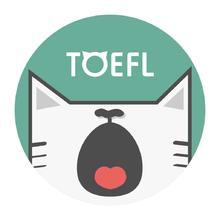 返回
教育头条
返回
教育头条

该如何说属于自己的托福口语
很多考生在托福口语考试里发现自己的句式词语和别人的很类似,在这种情况下很难得到高分,那么该如何才能说属于自己的口语呢?
1.学会概括和借鉴用句
举个例子。TPO1-task4-reading:
根据Task4的要求,要总结定义,于是很多同学看中了第二句比较完整的定义就开始复读了:…which means that individual members of a group attempt to conform their opinions to what they believe to be the group consensus even though the result may be negative.好了,大功告成。
然后你不觉得奇怪吗,干嘛非说individual members of a group,说group members不是意思达到了还更精简嘛。还有啊,非得把后面一连串都给读下来啊,意思读懂了就自己说嘛,group members may compromise their opinions to the group agreement even though the result may be bad。
有的时候,阅读或者听力本身也给学生提供很好的材料呢。
比如在Tpo3中学生在对话中说自己有time conflict,而在试题中,有很多task 5的材料都会涉及time conflict or schedule conflict,可是听力中不是每次都给你说出来的,那与其说成:sb has sth to do at a certain time, but he also has the other thing to do at that time,还不如直接用个sb has a time conflict between… and …来得漂亮。
2.说好口语也需要足够词汇量的支撑
词汇量大的学生往往能够使用简洁并且能够精确表达意思的词来组织自己的口语,从而不用跟着阅读或者听力后面打转转。
举例:TPO16- task 5
这组学生对话中这样说道:那有的学生就在说的时候只会把这句话记忆下来并说了出来,但这句话首先很长,说完时间就差不多了,很费时间;其次格调也不是很高,就是普通的对话。其实这句话你可以这样说,They can share the book by reading it alternately/ by turns。这样不就完事了吗?
简洁,意思准确。当然,考试中那么短的时间要想到alternately或者是by turns,平时的词汇量积累不可忽视。

3.学会长难句的运用,综合要点
举例:Tpo6-task 5中:
很多学生只会这样开头:In the conversation, the girl meets a problem that her study group doesn't get much study done. And not all of them did very well on the last quiz.
看见吧,几乎跟原句分毫不差。
那我们来看看如果用长点的句式,是不是可以感觉格调更高点:
In the conversation, the girl came to see the professor to solve the problem of the low efficiency of her study group, which was also a cause of their bad results in the last quiz.
1.学会概括和借鉴用句
举个例子。TPO1-task4-reading:
根据Task4的要求,要总结定义,于是很多同学看中了第二句比较完整的定义就开始复读了:…which means that individual members of a group attempt to conform their opinions to what they believe to be the group consensus even though the result may be negative.好了,大功告成。
然后你不觉得奇怪吗,干嘛非说individual members of a group,说group members不是意思达到了还更精简嘛。还有啊,非得把后面一连串都给读下来啊,意思读懂了就自己说嘛,group members may compromise their opinions to the group agreement even though the result may be bad。
有的时候,阅读或者听力本身也给学生提供很好的材料呢。
比如在Tpo3中学生在对话中说自己有time conflict,而在试题中,有很多task 5的材料都会涉及time conflict or schedule conflict,可是听力中不是每次都给你说出来的,那与其说成:sb has sth to do at a certain time, but he also has the other thing to do at that time,还不如直接用个sb has a time conflict between… and …来得漂亮。
2.说好口语也需要足够词汇量的支撑
词汇量大的学生往往能够使用简洁并且能够精确表达意思的词来组织自己的口语,从而不用跟着阅读或者听力后面打转转。
举例:TPO16- task 5
这组学生对话中这样说道:那有的学生就在说的时候只会把这句话记忆下来并说了出来,但这句话首先很长,说完时间就差不多了,很费时间;其次格调也不是很高,就是普通的对话。其实这句话你可以这样说,They can share the book by reading it alternately/ by turns。这样不就完事了吗?
简洁,意思准确。当然,考试中那么短的时间要想到alternately或者是by turns,平时的词汇量积累不可忽视。

3.学会长难句的运用,综合要点
举例:Tpo6-task 5中:
很多学生只会这样开头:In the conversation, the girl meets a problem that her study group doesn't get much study done. And not all of them did very well on the last quiz.
看见吧,几乎跟原句分毫不差。
那我们来看看如果用长点的句式,是不是可以感觉格调更高点:
In the conversation, the girl came to see the professor to solve the problem of the low efficiency of her study group, which was also a cause of their bad results in the last quiz.
该如何说属于自己的托福口语,如果你喜欢这篇文章,请将其保留版权转载。我的微信号(18560125702)欢迎来咨询,10年教培行业工作经验,如果你在托福方面有疑问,请与我联系,我将为您提供全面专业的选课帮助。返回教育宝头条
【免责声明】本文仅代表作者本人观点,与教育宝无关。教育宝对文中陈述、观点判断保持中立,不对所包含内容的准确性、可靠性或完整性提供任何保证。请读者仅作参考,特此声明!





